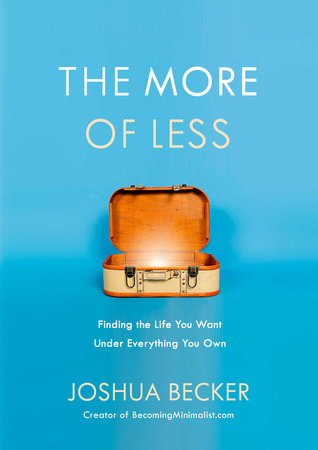 In our American consumer culture on steroids, it’s amazing more people don’t have the wake-up moment Joshua Becker did in 2008 when he realized he didn’t have time to play with his young son because he had to deal with an avalanche of clutter in his garage.
In our American consumer culture on steroids, it’s amazing more people don’t have the wake-up moment Joshua Becker did in 2008 when he realized he didn’t have time to play with his young son because he had to deal with an avalanche of clutter in his garage.
Thus began Becker’s BecomingMinimalist.com, arguably the best of an increasing number of blogs – including ToLiveLean.com – devoted to stripping down possessions, clutter, and commitments to free time and money for what’s really important: family, passions, and giving.
Becker has inspired millions to opt-out of the bigger-is-better American trend that results in less time and much more debt and stress. But even devoted followers of his blog will find new material and inspiration in the powerful new book “The More of Less.”
It’s not Becker’s first book, but the first produced by a mainstream publisher and marketed to the masses. It might be the coming out moment for the minimalist movement, even more so than Marie Kondo’s best-selling “The Life-Changing Magic of Tidying Up.”
Becker pays tribute to Kondo, as well as other noted declutterers such as Peter Walsh and fellow minimalist bloggers Courtney Carver, Ryan Nicodemus & Joshua Fields Millburn, Leo Babauta and others. But Becker drills deeper to frame minimalism as a means to develop a focused, mindful, intentional life.
Becker’s background is in church ministry and he delves a little deeper into the biblical references and his faith journey in “The More of Less” than he does in the blog, but the message resonates regardless of faith or lack thereof.
In the last few years, Becker has inspired me to eliminate 50 percent of my belongings, including 75 percent of my clothes, and reduce my television viewing to little more than college basketball. When you purchase only what you absolutely need, you find you don’t need much.
“Once we let go of the things that don’t matter,” Becker writes, “we are free to pursue all the things that do matter.”
Less clutter = more time and freedom. It’s a tough sell in America, where overconsumption is viewed as the norm, if not a civic duty to support our economy, itself unsustainable because of consumerism.
Minimalism, as Becker writes, is “the intentional promotion of the things we most value and the removal of anything that distracts us from them.”
Indeed, more is less.
